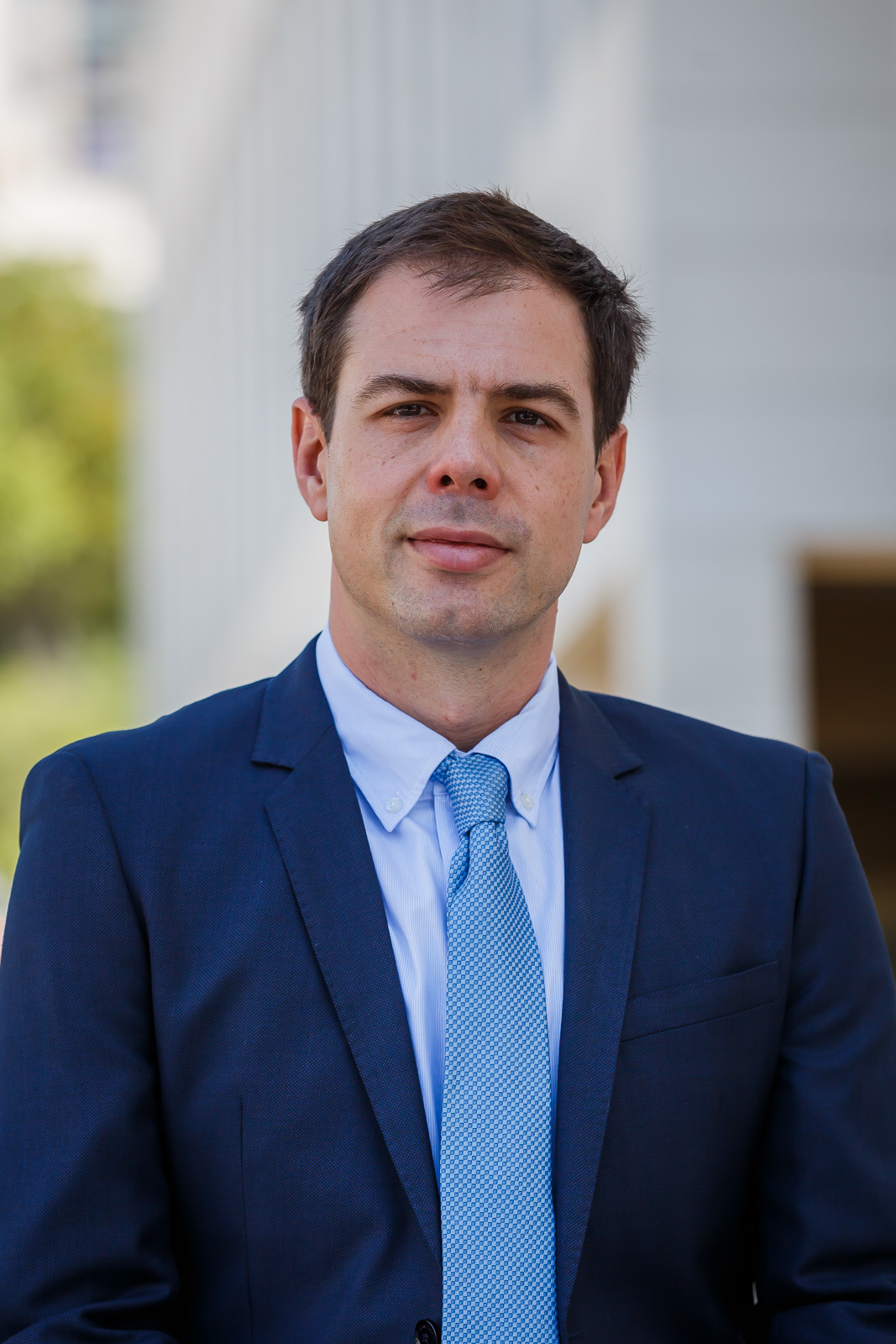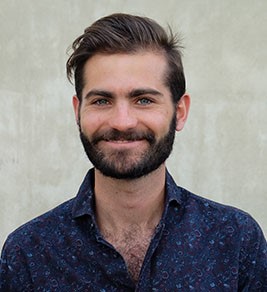VINKO MUŠTRA, Course leader

Vinko Muštra is the dean and associate professor at the Faculty of Economics, Business and Tourism, University of Split with a profound interest in regional and urban topics. His main research interest is in the field of smart specialization, urban development, regional resilience, decentralization, agglomeration economies and EU regional policy. He has been involved in the implementation of national and international research projects and initiatives. Also he has published a wide array of scientific papers and articles in the field of spatial sciences. Furthermore, he is the Chairperson of the Programme committee of the International Conference “Challenges of Europe” and president of ERSA Croatia.
ANDRÉS RODRÍGUEZ-POSE
 Andrés Rodríguez-Pose is the Princesa de Asturias Chair and a Professor of Economic Geography at the London School of Economics. He is the Director of the Cañada Blanch Centre LSE. He was awarded the 2018 ERSA Prize in Regional Science, arguably the highest prize in regional science, and has been a holder of a European Research Council (ERC) Advanced Grant and of a prestigious Royal Society-Wolfson Research Merit Award. He has also published more than 100 papers in peer-reviewed journals, is the joint managing editor of Environment and Planning C: Government and Policy, an editor of Economic Geography, and sits on the editorial board of 18 scholarly journals, including many of the leading international journals in economic geography, human geography and regional science. more
Andrés Rodríguez-Pose is the Princesa de Asturias Chair and a Professor of Economic Geography at the London School of Economics. He is the Director of the Cañada Blanch Centre LSE. He was awarded the 2018 ERSA Prize in Regional Science, arguably the highest prize in regional science, and has been a holder of a European Research Council (ERC) Advanced Grant and of a prestigious Royal Society-Wolfson Research Merit Award. He has also published more than 100 papers in peer-reviewed journals, is the joint managing editor of Environment and Planning C: Government and Policy, an editor of Economic Geography, and sits on the editorial board of 18 scholarly journals, including many of the leading international journals in economic geography, human geography and regional science. more
UGO FRATESI
 Ugo Fratesi is Full Professor of Regional Economics at Politecnico di Milano since December 2010. He holds a Phd in Economics (2003, Università Politecnica delle Marche), a MSc in Economics (2000, Bocconi University) and a MSc in Local Economic Development (2001, with distinction, the London School of Economics). He is Editor of main section papers and Book Review Editor of Regional Studies (Taylor and Francis) since 2013. Previously (2008-2012) he was a member of the editorial board of the Italian Journal of Regional Science. Prof. Fratesi has been involved with various roles in a large number of research project, especially at European level, financed by the Espon programme, FP5, FP7, Horizon 2020 and the European Commission directly. He is author of books and papers published in refereed journals in the field of regional and urban economics, primarily on the themes of: regional growth, including developing models for forecasting it; the theory and measurement of regional disparities; the theory and measurement of economies of localization and agglomeration; the territorial aspects of human capital and regional innovation; regional competitiveness; dynamic models; regional policy.
Ugo Fratesi is Full Professor of Regional Economics at Politecnico di Milano since December 2010. He holds a Phd in Economics (2003, Università Politecnica delle Marche), a MSc in Economics (2000, Bocconi University) and a MSc in Local Economic Development (2001, with distinction, the London School of Economics). He is Editor of main section papers and Book Review Editor of Regional Studies (Taylor and Francis) since 2013. Previously (2008-2012) he was a member of the editorial board of the Italian Journal of Regional Science. Prof. Fratesi has been involved with various roles in a large number of research project, especially at European level, financed by the Espon programme, FP5, FP7, Horizon 2020 and the European Commission directly. He is author of books and papers published in refereed journals in the field of regional and urban economics, primarily on the themes of: regional growth, including developing models for forecasting it; the theory and measurement of regional disparities; the theory and measurement of economies of localization and agglomeration; the territorial aspects of human capital and regional innovation; regional competitiveness; dynamic models; regional policy.
FRANCESCO MOLICA
 Francesco Molica is Economic and Policy Analyst at the JRC of the European Commission where his research work focuses on regional development and cohesion policy under the Regional Economic Monitoring pillar (REMO). Previously, he held the position of Director for Cohesion Policy and the EU Budget at the Conference of Peripheral Maritime Regions (CPMR), an influential European association and think tank representing local and regional authorities. In the past, he worked for the Directorate General of Regional and Urban Policy of the European Commission and the EU funding programmes department of the Calabria regional government (Italy). Francesco is routinely invited as speaker in conferences and workshops on regional policy and has given lectures in various universities (e.g. University of Rome Tor Vergata, Roma Tre University, Cergy-Pontoise University). He is author of papers and articles on regulatory as well as economic aspects of cohesion policy.
Francesco Molica is Economic and Policy Analyst at the JRC of the European Commission where his research work focuses on regional development and cohesion policy under the Regional Economic Monitoring pillar (REMO). Previously, he held the position of Director for Cohesion Policy and the EU Budget at the Conference of Peripheral Maritime Regions (CPMR), an influential European association and think tank representing local and regional authorities. In the past, he worked for the Directorate General of Regional and Urban Policy of the European Commission and the EU funding programmes department of the Calabria regional government (Italy). Francesco is routinely invited as speaker in conferences and workshops on regional policy and has given lectures in various universities (e.g. University of Rome Tor Vergata, Roma Tre University, Cergy-Pontoise University). He is author of papers and articles on regulatory as well as economic aspects of cohesion policy.
SEBASTIEN BOURDIN
 Sebastien Bourdin is Full Professor in Economic Geography at EM Normandie Business School. He joined EM Normandie in 2012. Holding a PhD in Geography and an Accreditation to Supervise Research, he specializes in the study of the European Union and issues related to Cohesion Policy, Territorial Development, Public Policies Evaluation, and Ecological Transition. In his research, he uniquely combines quantitative methods –such as Spatial Econometrics, Statistics, and Modelling– and qualitative methods to provide an in-depth perspective on his favorite topics. Sebastien Bourdin has led several notable research projects on current topics such as Energy Transition an Circular Economy.
Sebastien Bourdin is Full Professor in Economic Geography at EM Normandie Business School. He joined EM Normandie in 2012. Holding a PhD in Geography and an Accreditation to Supervise Research, he specializes in the study of the European Union and issues related to Cohesion Policy, Territorial Development, Public Policies Evaluation, and Ecological Transition. In his research, he uniquely combines quantitative methods –such as Spatial Econometrics, Statistics, and Modelling– and qualitative methods to provide an in-depth perspective on his favorite topics. Sebastien Bourdin has led several notable research projects on current topics such as Energy Transition an Circular Economy.
BOGDAN-CONSTANTIN IBANESCU
Bogdan–Constantin IBĂNESCU is a researcher at the Centre for European Studies of Alexandru Ioan Cuza University of Iasi, Romania. He holds a PhD diploma from Bordeaux Montaigne University, France (2012). He has a cumulated 12 years of teaching experience at Alexandru Ioan Cuza University of Iasi and University of Corsica Pasquale Paoli (France) on courses related to Geography of Tourism and Human Geography. He received several research grants and postdoctoral stages at Abdelmalek Essaâdi University, Morocco (2013), Bordeaux 3 University (2017) and Paris-Saclay University (2019) and participated as researcher on spatial analysis for the projects TerrEvi, ENACTED, ROSEC, GEOCOVID, and ReGrowEU. His main areas of interest are tourism development, spatial analysis, peripheral territories and regional resilience, having published several papers on peer-reviewed journals on those topics.
ALBERTO GIACOMETTI
 Research Fellow at Nordregio, a Nordic Centre for Regional Development and Planning. He is engaged in applied research projects in the field of regional development, the green transition and circular-economy. On behalf of the Nordic thematic group for green, innovative and resilient regions 2021-2024, and its predecessor programme (2017-2020), under the Nordic Council of Ministers‘ Committee of Civil Servants for Regional Affairs, Alberto has carried out empirical studies on regional resilience, the impacts of covid-related restrictions in border communities, and the actors’ perspective in green innovation. These studies have broadened the understanding of the different types of vulnerabilities Nordic regions face, and what role the institutional and social contexts play in coping with uncertainty. Moreover, Alberto is involved projects that that foster place-based and multi-actor approaches for regions economic path creation.
Research Fellow at Nordregio, a Nordic Centre for Regional Development and Planning. He is engaged in applied research projects in the field of regional development, the green transition and circular-economy. On behalf of the Nordic thematic group for green, innovative and resilient regions 2021-2024, and its predecessor programme (2017-2020), under the Nordic Council of Ministers‘ Committee of Civil Servants for Regional Affairs, Alberto has carried out empirical studies on regional resilience, the impacts of covid-related restrictions in border communities, and the actors’ perspective in green innovation. These studies have broadened the understanding of the different types of vulnerabilities Nordic regions face, and what role the institutional and social contexts play in coping with uncertainty. Moreover, Alberto is involved projects that that foster place-based and multi-actor approaches for regions economic path creation.
BLANKA ŠIMUNDIĆ
 Blanka Šimundić is an associate professor at the Faculty of Economics, Business and Tourism, University of Split. Her main scientific research is in the field of tourism and economic growth, transportation and infrastructure, regional development and regional policies in Croatia and EU. She has published on perspectives of transport and tourism demand and supply, impacts of tourism on economic growth, health tourism infrastructure, regional resilience and smart specialisation. She is one of the national experts reporting to for the European Policies Research Centre on the regional policy and the assessment of instruments for the less developed areas of the Republic of Croatia. Currently she is involved as a researcher on Horizon 2020 SmartCulTour project (Smart Cultural Tourism as a Driver of Sustainable Development of European Regions).
Blanka Šimundić is an associate professor at the Faculty of Economics, Business and Tourism, University of Split. Her main scientific research is in the field of tourism and economic growth, transportation and infrastructure, regional development and regional policies in Croatia and EU. She has published on perspectives of transport and tourism demand and supply, impacts of tourism on economic growth, health tourism infrastructure, regional resilience and smart specialisation. She is one of the national experts reporting to for the European Policies Research Centre on the regional policy and the assessment of instruments for the less developed areas of the Republic of Croatia. Currently she is involved as a researcher on Horizon 2020 SmartCulTour project (Smart Cultural Tourism as a Driver of Sustainable Development of European Regions).